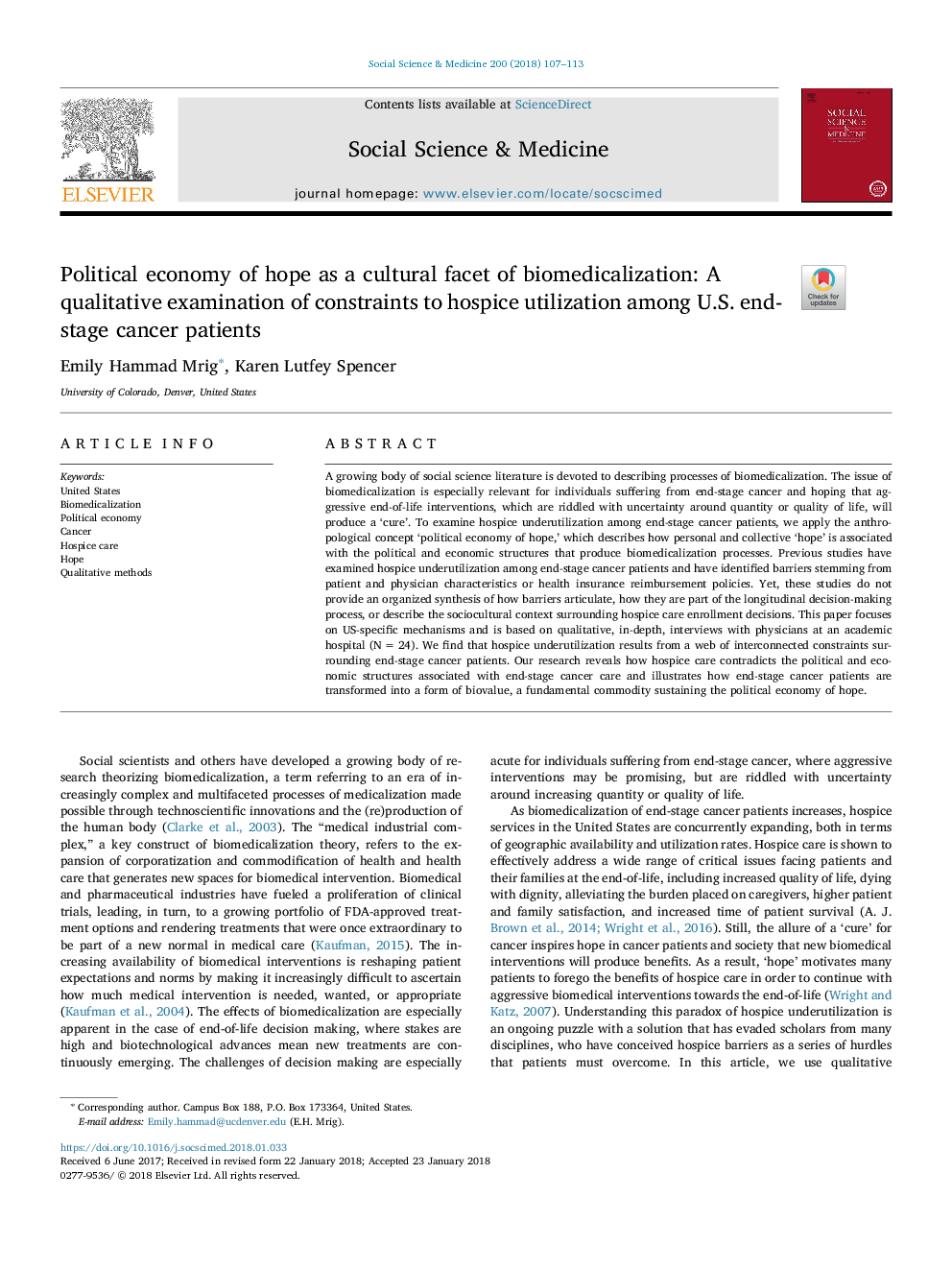ترجمه فارسی عنوان مقاله
اقتصاد سیاسی امید به عنوان یک جنبه فرهنگی از بیومدیکالیزاسیون: بررسی کیفی محدودیت های استفاده از هزاره در میان بیماران مبتلا به سرطان در ایالات متحده آمریکا
عنوان انگلیسی
Political economy of hope as a cultural facet of biomedicalization: A qualitative examination of constraints to hospice utilization among U.S. end-stage cancer patients
| کد مقاله | سال انتشار | تعداد صفحات مقاله انگلیسی |
|---|---|---|
| 86383 | 2018 | 7 صفحه PDF |
منبع

Publisher : Elsevier - Science Direct (الزویر - ساینس دایرکت)
Journal : Social Science & Medicine, Volume 200, March 2018, Pages 107-113
ترجمه کلمات کلیدی
ایالات متحده، بیومدیکالیزه کردن، اقتصاد سیاسی، سرطان، مراقبت های بهداشتی، امید، روش های کیفی،
کلمات کلیدی انگلیسی
United States; Biomedicalization; Political economy; Cancer; Hospice care; Hope; Qualitative methods;

